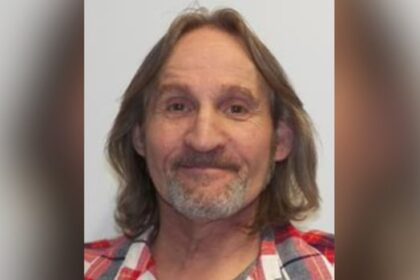Nova Scotia·NewSamuel Provo-Benoit has been living with Type 1 diabetes for 25 years. Now 35, complications from the disease have claimed his kidneys, so when he learned of a ‘cure’ that’s unavailable on the East Coast, he successfully manoeuvred himself onto Toronto General Hospital’s transplant waitlist.Pancreas transplants aren’t offered in Nova Scotia so Samuel Provo-Benoit referred himself to Toronto programElizabeth Chiu · CBC News · Posted: Sep 25, 2025 5:00 AM EDT | Last Updated: 30 minutes agoSamuel Provo-Benoit organized a community concert at St. Thomas Baptist Church in North Preston, N.S., to raise money for his medical travel expenses. (Elizabeth Chiu/CBC News)Samuel Provo-Benoit sits in his grandmother’s living room — surrounded by family photos, angel figurines and bible verses — and waits for a phone call that could save his life.Provo-Benoit, 35, lives with his grandmother in North Preston, N.S. He passes the time watching television, waiting for a daily visit from a nurse to check his dialysis machine and glancing at his phone. There’s an anxious stillness here.When his phone rings, his feeling of anticipation quickly turns to disappointment.”It was a 647 number so I thought it was that call, but it wasn’t. It was a spam call,” he said with a weary smile.Since February, Provo-Benoit has been waiting for a call from the Ajmera Transplant Centre at Toronto General Hospital that a kidney and pancreas are ready for him.Provo-Benoit keeps his phone close to monitor his blood sugar and to answer the eventual call that will tell him to head to Toronto for transplant surgery. (Keke Beatz for CBC News)Provo-Benoit was diagnosed with Type 1 diabetes when he was 10 years old. Complications from the disease have claimed his kidneys so he requires dialysis or a transplant for survival.He also requires a pancreas transplant which would stop the progression of irreversible damage spreading through his body, including some vision loss and nerve damage in his feet. It would also free him from the constant worry of dangerous blood sugar crashes.Had to self-referThis diabetic is waiting for a transplant call that could save his lifeSamuel Provo-Benoit has been living with Type 1 diabetes for 25 years. Now 35, complications from the disease have claimed his kidneys. But then he heard about a transplant program in Toronto. Elizabeth Chiu has the story.While kidney transplants are available in Nova Scotia, complex pancreas surgery hasn’t been offered in the province in almost 10 years.”There was no way that I could be living on this Earth knowing that there’s a cure … and I not do what I need to do to get that cure,” Provo-Benoit said.Last year during a dialysis treatment at the Halifax Infirmary, a doctor he’d never seen before, or seen since, mentioned a program in Ontario that offers kidney and pancreas transplants, but he would have to self-refer.So he searched for it online and made a call.Provo-Benoit’s call was returned in January by Andrea Norgate, a registered nurse and clinical co-ordinator of the Ajmera Transplant Centre.Norgate said a lot of patients she’s worked with are similar to Provo-Benoit. The average age of transplant recipients is 35-45.”I was looking for a little bit of hope, and she reassured me that I would find that hope with the transplant,” he said.Soon his medical records were forwarded, blood tests were done and he was paying out-of-pocket for a trip to Toronto where he met the transplant team and was placed on the waitlist. The team also secured the support of his nephrologist to provide followup care in Nova Scotia.Provo-Benoit was diagnosed with Type 1 diabetes when he was 10. It’s been a daily burden to manage his blood sugar. (Submitted)Health-care systems are set up to have physicians act as gatekeepers to medical resources. Provo-Benoit’s ability to initiate the process for out-of-province transplant surgery on his own is frowned upon by the Nova Scotia government.In a statement from the Department of Health and Wellness, a spokesperson said “patients cannot self-refer” noting that a Nova Scotia specialist must make a referral “demonstrating the medical necessity of the procedure and committing to post-operative followup care once the patient returns.”But Provo-Benoit bypassed that system, simply by making a call.”I was like, ‘Well, Sam, you can do one or two things. You can either sit here and you can complain … or you can go ahead and pull up your socks and do the work and get it done,'” he said. “And I just had to get it done.”Transplant patients turned awayThat physician barrier is one the Toronto transplant team has encountered numerous times.Dr. Trevor Reichman, the surgical director of the pancreas transplant program, said three to five patients a year from the East Coast with “significant issues with diabetes and comorbidities” are accepted for transplant, but are then blocked by physicians in their home province.Without the approval of the procedure and agreement to care for the patient following surgery, provincial governments won’t cover surgery and travel-related costs, so he’s been forced to turn them away.”You could essentially fix what they’re really struggling with with regards to diabetes and not be able to do it,” said Reichman. “It’s hard to tell them, sorry, we can’t help you.”He blames it on outdated knowledge among some doctors that pancreas transplants don’t work. But over the last decade, the procedure has evolved into a “functional cure” for diabetes that also extends the life of a transplanted kidney.After Norgate noticed a pattern of zero referrals for patients from Atlantic Canada about three years ago, Reichman has travelled to Nova Scotia and New Brunswick to educate the medical community.Dr. Trevor Reichman has been travelling to Atlantic Canada to educate doctors about pancreas transplants in an effort to provide the surgery to more patients from the East Coast. (Anthony Olsen/University Health Network)He hopes to do the same in Prince Edward Island and Newfoundland later this year to help more patients.The outreach seems to be working. Two patients, both Nova Scotians, have received transplants this year. Provo-Benoit could be the third, according to Norgate.Unlike a lot of diseases that offer no hope, Norgate said Provo-Benoit now “has something to look forward to.””I’m very honoured and happy to be a part of that,” she said.Ready for the next stepFearing he could be saddled with the financial burden of out-of-province health care, Provo-Benoit held a fundraising concert in late March, where he shared the mental anguish of living with a chronic, debilitating disease. “I did not want to be here anymore. I didn’t know if I was going to make it to the next day or not,” adding that the support of his friends and family helped him persevere.This photo was taken in 2023, the last time Samuel Provo-Benoit saw his twin daughters, Amiyah, left, and Sierra. (Meghan Downey/MNEO Designs)His suitcase is partially packed, and he’s ready for the next step. He’s praying the call comes “really soon before something worse happens.”Transplant surgery provides him with hope for a normal life. He wants to work again and his goal is to land a job as a paralegal.He also plans to travel to reunite with his twin daughters. They live in Winnipeg, and he hasn’t seen them in two years.”I owe a lot to Andrea and her team, I do. I just keep thinking that they’re giving my kids their dad back.”ABOUT THE AUTHORElizabeth Chiu is a short documentary producer in Nova Scotia. She’s passionate about engaging with the community to share their stories. Send your story idea to elizabeth.chiu@cbc.ca.
Nova Scotia man in desperate need of organ transplant turns to Ontario clinic for survival











